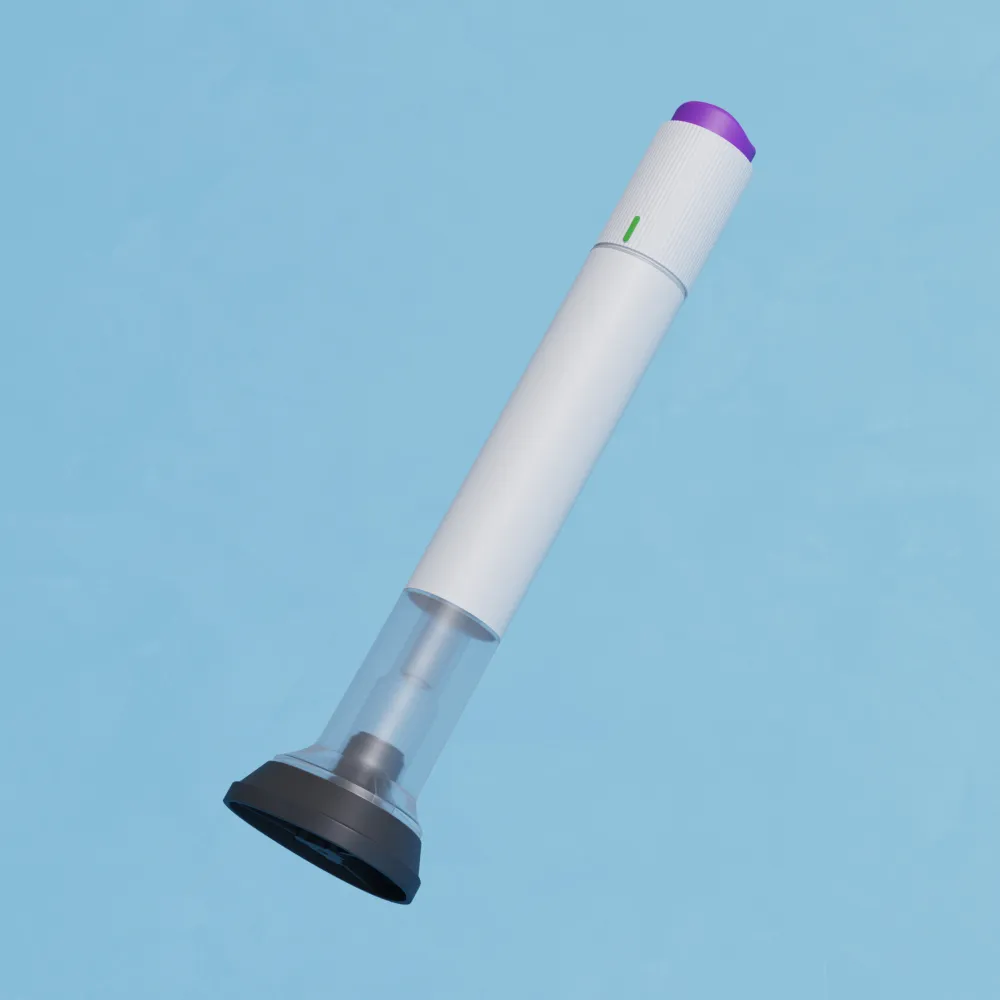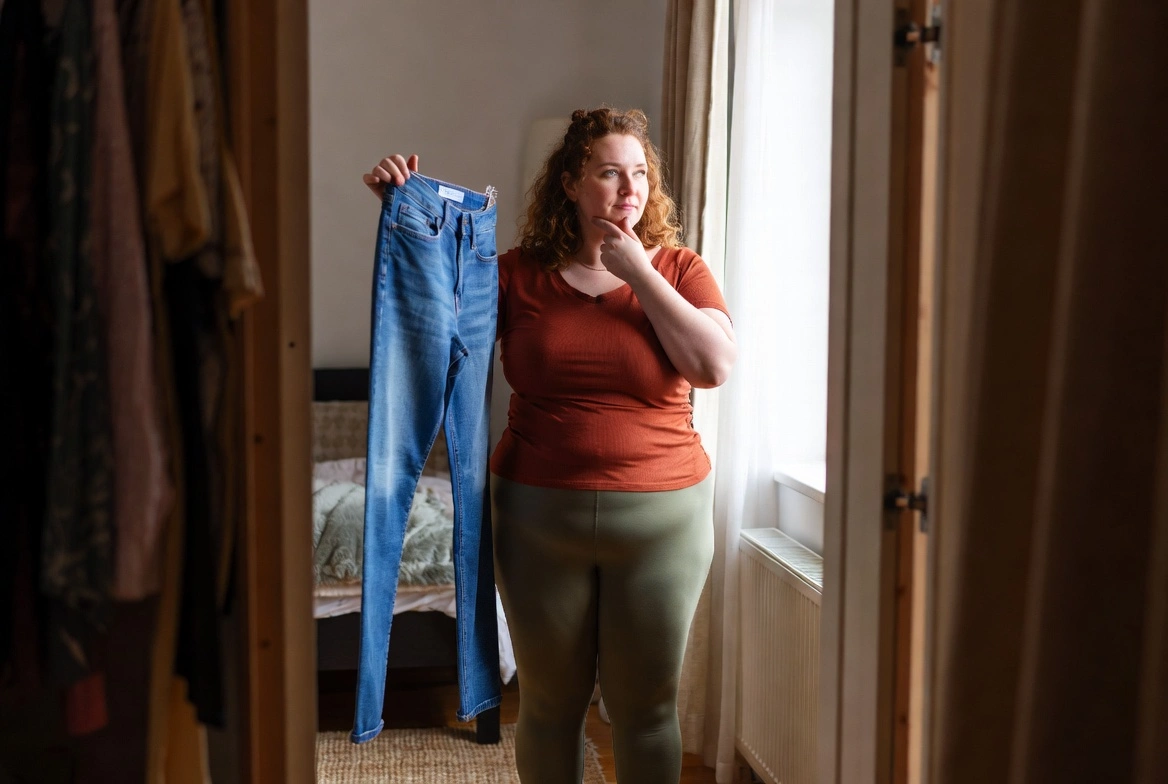Zepbound® for Sleep Apnea: What FDA Approval Means


Zepbound® is FDA-approved for adults with obesity and moderate-to-severe obstructive sleep apnea (OSA), to be used along with diet and exercise. Learn eligibility, AHI results in trials, how it works with CPAP, side effects, and insurance next steps.
- The FDA has approved Zepbound® for sleep apnea for moderate-to-severe OSA in adults with obesit when used with diet and exercise.
- Clinical trials measured changes in apnea-hypopnea index (AHI) over 52 weeks and found greater improvement with Zepbound® vs placebo.
- Zepbound® is meant to be added to standard OSA treatments like CPAP/PAP, oral devices, and weight management. It does not replace these treatments.
- GI side effects are common, and there’s a boxed warning about thyroid C-cell tumors (among other risks).
- This approval is for obstructive sleep apnea, not central sleep apnea.

At A Glance
Zepbound® (tirzepatide) is FDA-approved for adults with obesity and moderate-to-severe obstructive sleep apnea (OSA), to be used with a lower-calorie diet and increased physical activity. In 52-week studies, people taking Zepbound® saw bigger improvements in apnea severity (AHI) than those on placebo.
Many people will still need a CPAP or PAP machine since Zepbound® doesn’t automatically replace these devises. It simply adds another medication option to standard care (such as CPAP/PAP and weight management).
What The FDA Approval Means for Sleep Apnea Treatment
For a long time, “sleep apnea treatment” mainly involved CPAP/PAP, oral appliances, and lifestyle changes. The approval adds a new tool to the treatment plan.
Who Qualifies for Zepbound® for Sleep Apnea?
It’s FDA-approved for adults who have:
- Moderate-to-severe obstructive sleep apnea (OSA), and
- Obesity (often BMI ≥ 30 kg/m²).
It should be used along with diet changes and more physical activity.
But what does moderate-to-severe mean?
It’s based on a sleep study results, such as AHI/REI/RDI scores. Your clinician will explain these numbers. Many insurance plans use a threshold like AHI/REI/RDI of 15 or higher (mainly obstructive), and ask for extra documentation.
{{primary-cta}}
How The Studies Measured Improvement (AHI Explained)
The main results in the studies focused on improvements in the apnea-hypopnea index (AHI). AHI measures how many times your breathing is interrupted each hour while you sleep.
In the 52-week SURMOUNT-OSA study, tirzepatide led to greater improvements in AHI compared to placebo. People may improve at different rates, and results can depend on how severe their sleep apnea is to start, their anatomy, how well they follow other treatments, and their overall health.
Zepbound® vs CPAP: Will You Still Need A Machine?
A lot of people arrive here looking for a sleep apnea treatment without a CPAP. CPAP can be uncomfortable and tough to stick with.
Starting Zepbound® doesn’t automatically mean you can toss your CPAP/PAP. Although people may see meaningful improvement over time, you may still need CPAP/PAP (or another therapy). Any changes should be made with your clinician based on how you feel and what your follow-up data shows.
If CPAP is the sticking point, it may be worth troubleshooting your mask fit, humidification, pressure settings, and nasal symptoms before giving up. Sometimes small adjustments make it much, much easier.
Obstructive vs Central Sleep Apnea + Why It Matters
Obstructive sleep apnea (OSA) is caused by airway blockage/collapse. Central sleep apnea (CSA) is from breathing pauses because the brain doesn’t consistently send the signal to breathe during sleep.
The FDA approval is for obstructive sleep apnea in adults with obesity, not for central sleep apnea. If you have central or complex sleep apnea, talk to a sleep clinician about treatment options.
{{primary-cta}}
Side Effects + Important Safety Info
Zepbound® can cause side effects, and it carries serious risks that require screening and monitoring.
- Common side effects often include nausea, diarrhea, vomiting, constipation, and abdominal pain (among others).
- Boxed warning: risk of thyroid C-cell tumors; do not use if you or a family member has had medullary thyroid carcinoma (MTC) or if you have MEN2.
- Other serious risks may include pancreatitis, gallbladder disease, kidney problems, severe GI reactions, hypoglycemia (especially with certain diabetes meds), and hypersensitivity. Discuss symptoms and monitoring with a licensed clinician.
Insurance And Prior Authorization: What to Expect
So, what happens next? Here’s the practical version.
Many insurance plans require a prior authorization and documentation such as:
- Confirmed moderate-to-severe OSA based on sleep study metrics (AHI/REI/RDI),
- Confirmation that it’s predominantly obstructive,
- And clinical notes supporting the diagnosis and treatment plan.
To speed things up, have these on hand:
- Your sleep study report (or summary),
- Your most recent weight/BMI,
- Current treatment history (CPAP/PAP use, symptoms, follow-up notes).
Is Zepbound® Right for Your Sleep Apnea?
If you’re considering Zepbound® for OSA, start with your sleep study details (including your diagnosis and severity), what you’ve already tried (like CPAP/PAP), and your health history. From there, Eden can be a helpful starting point by walking you through the basics and help you connect with a licensed clinician to talk through the safest, most appropriate next step.

Blog Components



The FDA does not approve compounded medications for safety, quality, or manufacturing. Prescriptions and a medical evaluation are required for certain products. The information provided on this blog is for general informational purposes only. It is not intended as a substitute for professional advice from a qualified healthcare professional and should not be relied upon as personal health advice. The information contained in this blog is not meant to diagnose, treat, cure, or prevent any disease. Readers are advised to consult with a qualified healthcare professional for any medical concerns, including side effects. Use of this blog's information is at your own risk. The blog owner is not responsible for any adverse effects or consequences resulting from the use of any suggestions or information provided in this blog.
Eden is not a medical provider. Eden connects individuals with independent licensed healthcare providers who independently evaluate each patient to determine whether a prescription treatment program is appropriate. All prescriptions are written at the sole discretion of the licensed provider. Medications are filled by state-licensed pharmacies. Please consult a licensed healthcare provider before making any medical decisions.
Frequently asked questions
Yes, for moderate-to-severe obstructive sleep apnea (OSA) in adults with obesity, used with diet and increased physical activity.
Not automatically. Many people still need CPAP/PAP. Any changes should be clinician-guided using your follow-up data.
No, the FDA approval is for obstructive sleep apnea (OSA). CSA requires a different evaluation and plan.
U.S. Food & Drug Administration. (2024, December 20). FDA approves first medication for obstructive sleep apnea. https://www.fda.gov/news-events/press-announcements/fda-approves-first-medication-obstructive-sleep-apnea
Eli Lilly and Company. (2024, December). Zepbound® (tirzepatide) injection, for subcutaneous use: U.S. prescribing information [PDF]. https://pi.lilly.com/us/zepbound-uspi.pdf
Malhotra, A., Grunstein, R. R., Fietze, I., Weaver, T. E., Redline, S., Azarbarzin, A., Sands, S. A., Schwab, R. J., Dunn, J. P., Chakladar, S., Bunck, M. C., Bednarik, J., & SURMOUNT-OSA Investigators. (2024). Tirzepatide for the treatment of obstructive sleep apnea and obesity. The New England Journal of Medicine, 391(13), 1193–1205. https://doi.org/10.1056/NEJMoa2404881
American Academy of Sleep Medicine. (2024, December 20). AASM statement on FDA approval of Zepbound for sleep apnea. https://aasm.org/zepbound-approval-sleep-apnea-american-academy-sleep-medicine-statement/
Eli Lilly and Company. (2025). Savings card, cost & coverage support | Zepbound®. https://zepbound.lilly.com/coverage-savings
Thank you!
We'll be in touch.
Thank you!

























